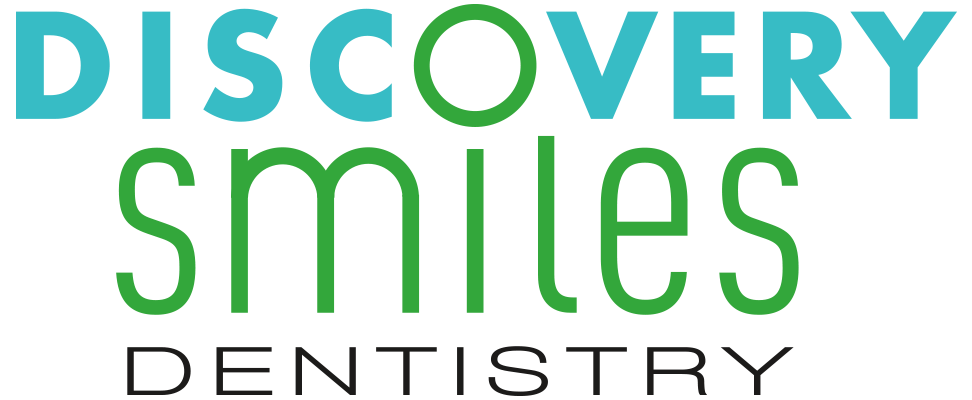
The Role of Nutrition in Oral Care
Posted on Apr 01, 2025
Good nutrition is not just essential for overall health; it plays a crucial role in maintaining strong teeth and gums. A diet rich in vitamins and minerals helps fortify tooth enamel, fight gum disease, and promote the health of the soft tissues in the mouth. Calcium, for example, is vital for keeping teeth strong, as it supports enamel and jawbone density. Foods like dairy products, leafy greens, and fortified cereals are excellent sources of calcium. Similarly, vitamin D helps the body absorb calcium, so getting enough sunlight or eating vitamin D-rich foods like fish and eggs is essential for oral health.
Sugary and starchy foods, on the other hand, can be harmful to your teeth. When you consume sugar, it interacts with the bacteria in your mouth, creating acids that can erode tooth enamel and lead to cavities. It’s not just candy and soda that pose a risk; foods like bread, pasta, and even fruit juices can contribute to tooth decay if not properly managed. To protect your teeth, it’s important to limit sugary snacks and focus on eating a balanced diet with plenty of whole foods, lean proteins, and vegetables. Drinking water throughout the day also helps wash away food particles and keeps saliva levels high, which is important for neutralizing acids and keeping your mouth clean.
Vitamins and antioxidants found in fruits and vegetables also support healthy gums by reducing inflammation and fighting bacteria. Vitamin C, found in citrus fruits, peppers, and broccoli, is essential for collagen production and helps maintain the integrity of your gums. A deficiency in vitamin C can lead to gum bleeding and even gum disease. Omega-3 fatty acids found in fish and nuts, are also known to reduce inflammation, which can be especially beneficial for individuals who are prone to gum issues. By making smart nutritional choices, you can significantly enhance your oral care routine and promote long-term dental health.
Call 520-721-2000 to book your appointment at Discovery Smiles today.
Previous Blog Article
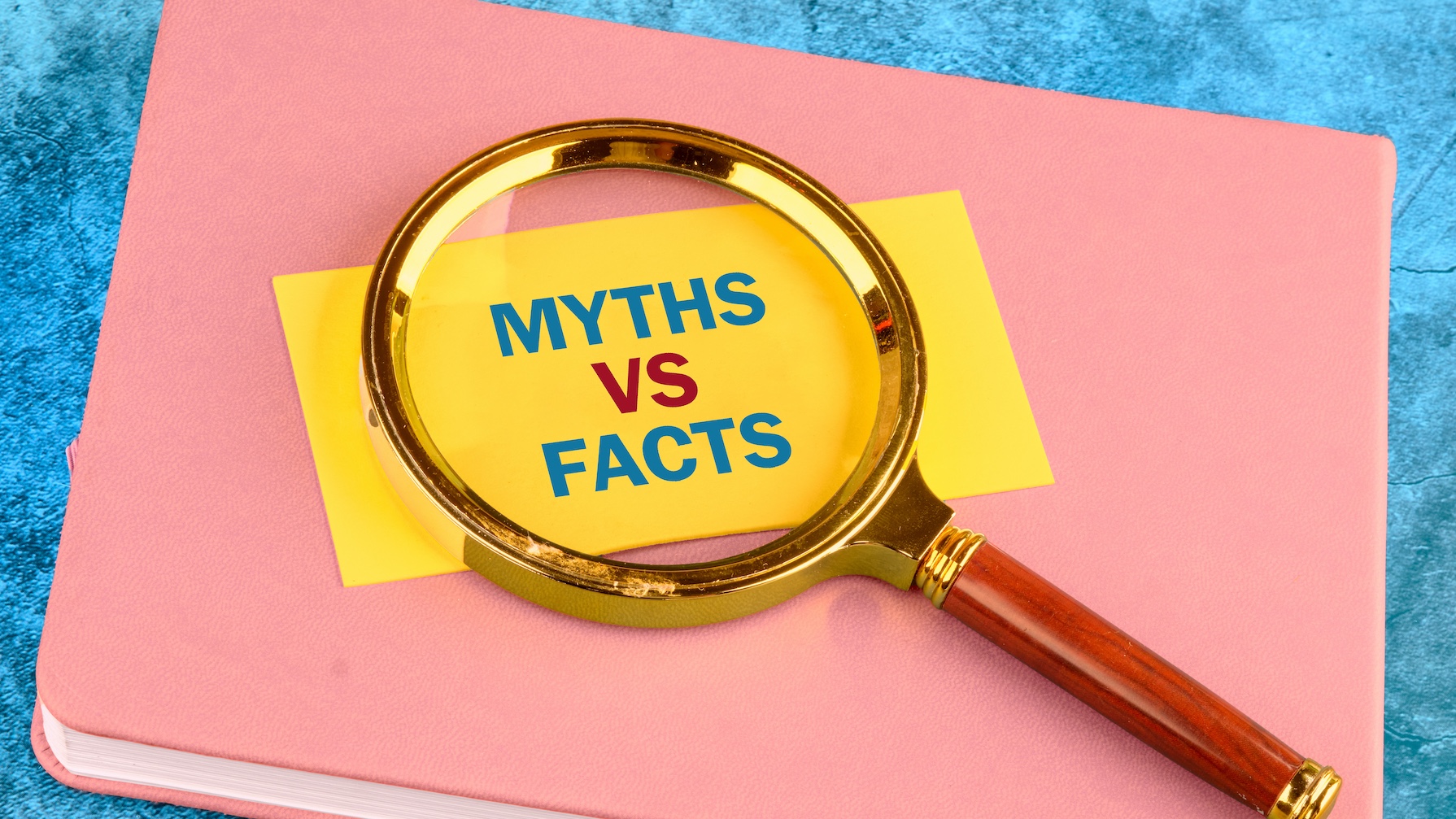
Debunking Common Dental Myths
Posted on Mar 01, 2025
Many dental myths have been passed down over time, often leading to confusion about what is truly best for oral health. One common misconception is that you should only see the dentist if you have pain. In reality, many dental issues like cavities, gum disease, or even infections can develop without causing immediate discomfort. Regular dental check-ups help detect problems early, preventing them from worsening and requiring more intensive treatment later. Preventive care, including professional cleanings, is essential for maintaining a healthy mouth.
Another widespread myth is that sugar is the only cause of cavities. While it’s true that sugar plays a significant role in tooth decay, it’s actually the bacteria in your mouth that digest sugars and produce acids that erode tooth enamel. Any carbohydrate, including bread, pasta, or even fruit, can fuel these bacteria if left on your teeth for too long. The key is maintaining good oral hygiene, brushing and flossing regularly to remove food particles and reduce plaque build-up, regardless of the type of food you eat.
Lastly, a myth many people believe is that whitening toothpaste can drastically whiten teeth. While whitening toothpaste can help remove surface stains caused by coffee, tea, or tobacco, it doesn’t change the natural color of your teeth or provide the same results as professional whitening treatments. These toothpastes often contain mild abrasives, which can improve the appearance of your smile but may not be sufficient for deep stains. For significant whitening, a professional treatment is the most effective option. Understanding these myths can help ensure your dental care routine is based on facts rather than misconceptions.
Call 520-721-2000 to book your appointment at Discovery Smiles today.
Previous Blog Article
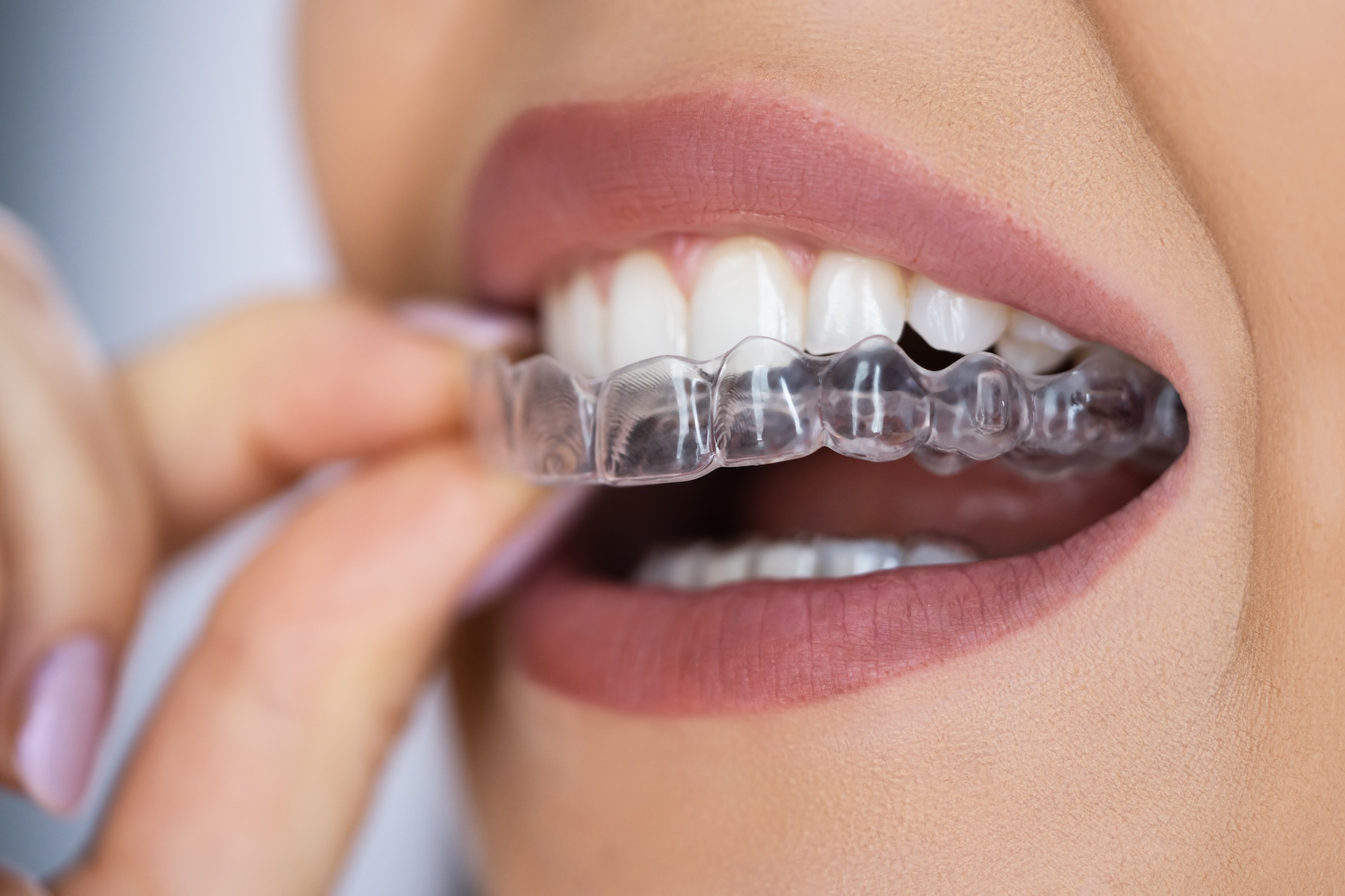
Clear Aligners: A Modern Solution for Straighter Teeth
Posted on Feb 01, 2025
Clear aligners have transformed the orthodontic landscape, offering a modern alternative to traditional braces. These custom-made, nearly invisible trays gradually move teeth into the desired position without the need for metal brackets or wires. The appeal of clear aligners lies in their aesthetic advantage, as they are discreet and hard to notice, making them a preferred choice for adults and teens who are conscious about their appearance during treatment. Whether correcting minor misalignment or more complex dental issues, clear aligners provide an effective solution that fits seamlessly into daily life.
Clear aligners can be removed during meals and for brushing and flossing. This flexibility means patients can maintain better oral hygiene throughout the treatment process, as they don’t have to navigate around brackets and wires. Plus, there are no dietary restrictions, so you can enjoy your favorite foods without worry. Clear aligners also require fewer office visits, as there are no adjustments needed – patients simply switch to the next set of aligners every couple of weeks.
Clear aligners are also more comfortable than traditional braces. Made from smooth, BPA-free plastic, the trays are custom-fitted to the patient’s teeth, minimizing the risk of irritation to the gums and cheeks. While some pressure is normal as the teeth shift, the absence of sharp metal components means fewer mouth sores or discomfort. This makes clear aligners a gentler option for those seeking orthodontic treatment. Additionally, the gradual progression of aligner sets allows for steady movement of the teeth, often resulting in a more predictable and manageable treatment process.
Clear aligners are effective in treating a wide range of orthodontic issues, from crowded teeth to overbites, underbites, and gaps. The combination of aesthetics, comfort, and effectiveness makes clear aligners a leading choice for those looking to achieve a healthier, straighter smile.
Call 520-721-2000 to book your appointment at Discovery Smiles today.
Previous Blog Article
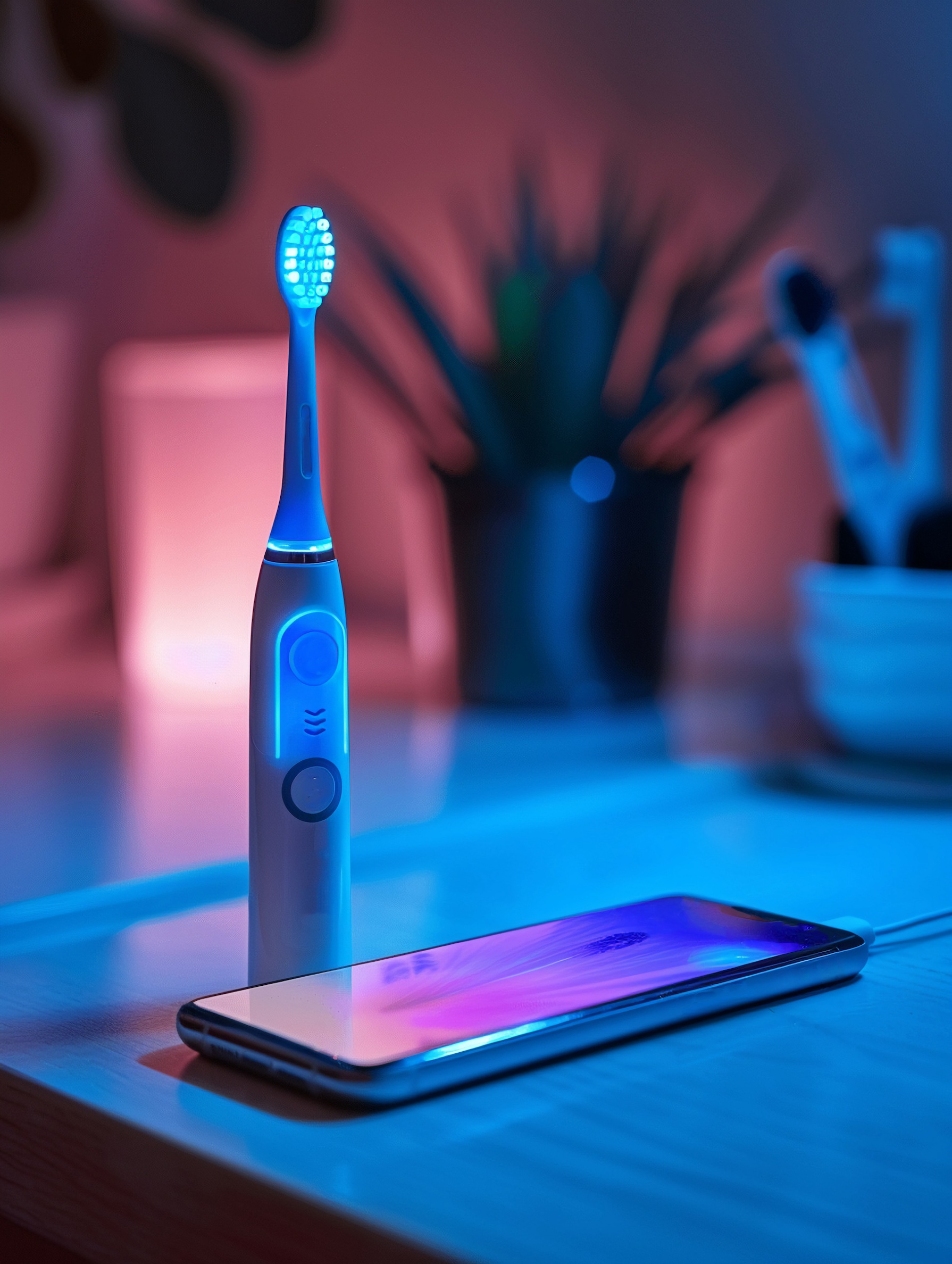
Smart Toothbrushes Revolutionize Oral Care
Posted on Jan 01, 2025
In today’s tech-savvy world, even our daily hygiene routines are becoming smarter. One significant advancement is the rise of smart toothbrushes, designed to enhance oral health with technology that tracks, analyzes, and improves brushing habits. These toothbrushes connect to apps via Bluetooth, providing real-time feedback on your brushing techniques and offering personalized tips for a more effective cleaning experience. Smart toothbrushes can ensure every brushing session is as thorough as possible.
One of the standout features of smart toothbrushes is their ability to monitor brushing patterns. Many models come equipped with sensors that detect pressure, motion, and coverage. These sensors can tell if you’re applying too much force (which can damage your gums) or missing certain areas of your mouth. The connected app typically displays a 3D map of your mouth, highlighting zones that need more attention. This technology helps users correct bad brushing habits, potentially reducing the risk of cavities, gum disease, and plaque build-up.
While smart toothbrushes may come with a higher price tag than traditional brushes, the benefits they offer detailed insights that were previously only available during dental visits. With regular use, smart toothbrushes can play a key role in preventative care, potentially reducing the need for dental treatments down the road.
Call 520-721-2000 to book your appointment at Discovery Smiles today.
Previous Blog Article

Does Smiling Really Make Me Happier?
Posted on Dec 11, 2024
In the wide range of human emotions, one simple act has the power to brighten our days and connect us across cultures and languages. It’s the act of smiling. But does smiling genuinely make us happier? Let’s explore a few of the benefits. When you break into a smile, your brain responds by releasing feel-good neurotransmitters, like dopamine. These little messengers help reduce stress and elevate your mood, proving that a simple smile can act as your stress relief ally. Even if your smile is forced, it can still lower your heart rate during tense moments. Smiling is a universal sign of happiness and friendliness. It’s the simplest way to communicate warmth and approachability without saying a word. In fact, a sincere smile can make you appear more attractive, sociable, and approachable. The act of smiling isn’t just about appearances; it’s about enhancing your overall well-being. Studies show that smiling can improve your life satisfaction and sense of well-being. Happiness, often accompanied by smiles, is even linked to lower levels of depression and a stronger immune system. Ever noticed how a smile is often met with another smile? It’s because smiles are highly contagious. When you smile at someone, they’re more likely to reciprocate. And it’s not just about the immediate exchange. Witnessing someone else’s smile can trigger the same brain activity as if you were the one smiling. There’s a difference between a polite grin and a heartfelt smile. A genuine, Duchenne smile, involving both the mouth and the eyes, is considered more sincere and can have a stronger impact on others. So, does smiling really make you happier? The statistics suggest that it can indeed elevate your mood, reduce stress, and possibly live a longer life. And if you’re still not convinced, consider the advice of musician Martin Charnin: “You’re never fully dressed without a smile.”
Call 520-721-2000 to book your appointment at Discovery Smiles today.
Previous Blog Article

Should I Use Mouthwash?
Posted on Nov 01, 2024
Mouthwash is a liquid product used for various oral hygiene purposes. It’s a versatile addition to your dental care routine, offering benefits beyond just freshening your breath and can serve multiple purposes:
- Fresh Breath: One of the primary reasons people use mouthwash is to combat bad breath or halitosis. Mouthwash often contains antimicrobial agents that help kill bacteria responsible for foul odors, leaving you with minty-fresh breath.
- Plaque and Bacteria Control: Some mouthwashes are formulated to reduce plaque buildup and control harmful bacteria in the mouth, aiding in preventing gum disease and cavities.
- Gum Health: Other mouthwashes target gum health, helping to reduce inflammation and discomfort associated with conditions like gingivitis. They may contain soothing agents to provide relief.
- Teeth Whitening: Whitening mouthwashes can remove surface stains and maintain a brighter smile.
- Dry Mouth Relief: For individuals with dry mouth (xerostomia), there are mouthwashes specially designed to provide moisture and comfort, combating the sensation of dryness.
- Fluoride Protection: Some mouthwashes include fluoride, which strengthens tooth enamel and aids in cavity prevention.
It’s worth noting that mouthwash is available in various formulations, including alcohol-free options for those with sensitivity or concerns about alcohol content. Consult with your dentist or hygienist for guidance on which is best for you.
Previous Blog Article

Why Does My Mouth Feel So Dry?
Posted on Oct 01, 2024
Dry mouth, also known as xerostomia, can be an uncomfortable sensation. Several factors can contribute to this condition. One common cause is medication. Many prescription and over-the-counter drugs, including those for allergies, anxiety, and high blood pressure, can cause dry mouth as a side effect. Certain medical conditions can also lead to reduced salivary flow. Lifestyle choices like smoking and excessive alcohol consumption can exacerbate dry mouth symptoms. Moreover, breathing through the mouth due to nasal congestion or habits can contribute to the issue.
To alleviate dry mouth, several strategies can be beneficial. Staying well-hydrated by drinking plenty of water is crucial. Humidifying the air in your living space, especially at night, may alleviate nighttime dry mouth.
A range of products is available to provide relief. These products are specifically designed to increase salivary flow, alleviate the discomfort associated with dry mouth, and enhance overall oral health. Among these options are:
- Moisturizing mouthwashes, tailored to dry mouth, which contain soothing and moisturizing agents.
- Saliva substitutes, available as sprays, gels, or rinses, aim to mimic the properties of natural saliva, delivering essential lubrication and moisture.
- Sugar-free gum and sugar-free lozenges can stimulate saliva production and often include xylitol, which may offer additional oral health benefits.
- Specialized toothpaste formulated for dry mouth can alleviate dryness while also offering cavity prevention.
For those experiencing chronic or severe dry mouth, consulting with a dentist is advisable to receive guidance on the most suitable products and treatment options that can address the underlying cause and improve overall oral health.
Previous Blog Article
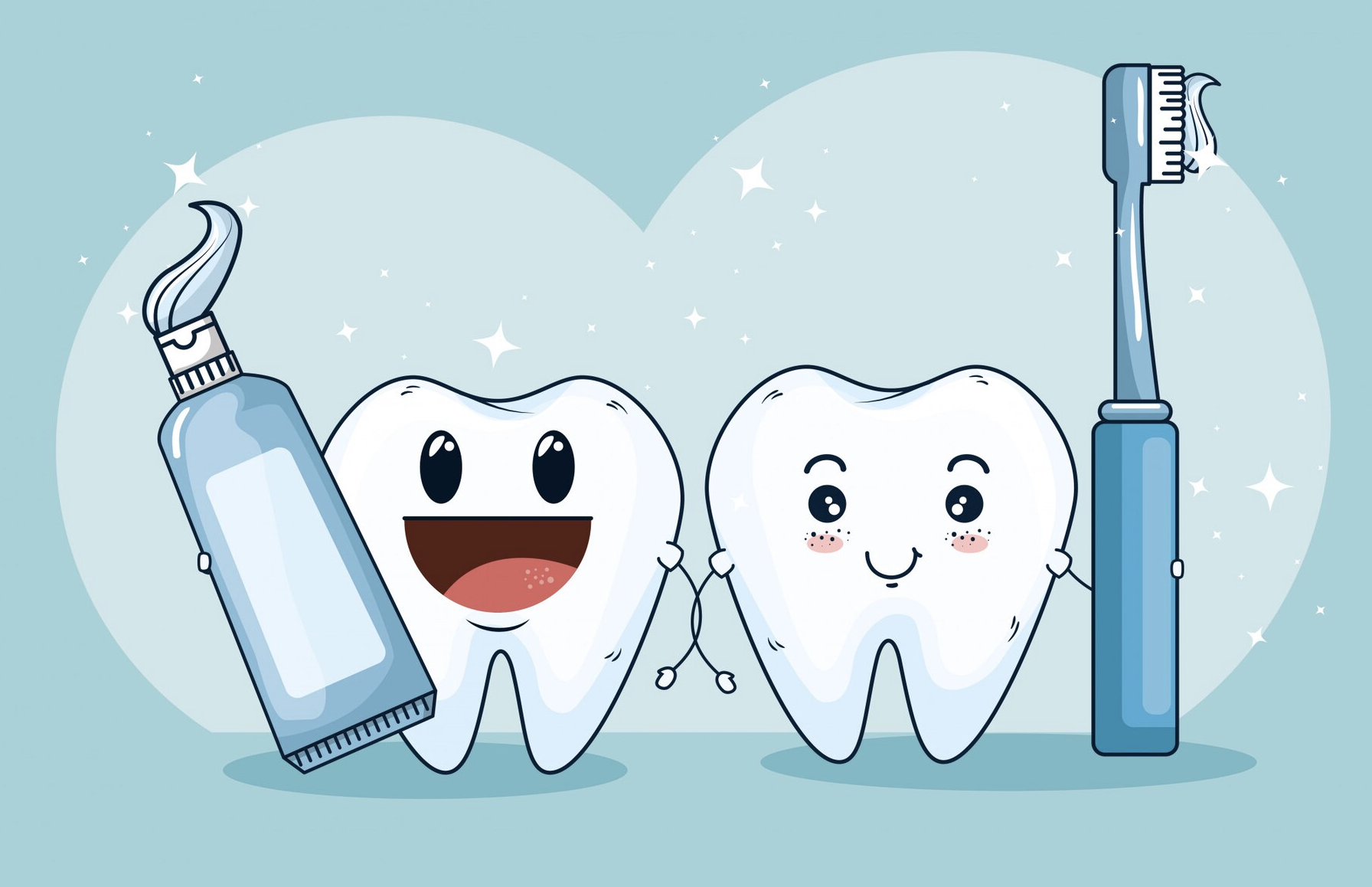
Should I Use Fluoride Toothpaste?
Posted on Sep 01, 2024
Fluoride toothpaste has long been a cornerstone of oral hygiene, and the answer to whether you should use it is a resounding yes.
Fluoride, a natural mineral, offers multiple benefits when it comes to maintaining oral health. It stands as a powerful ally in preventing tooth decay by strengthening tooth enamel, making it more resistant to acid attacks from bacteria and sugars. In fact, fluoride’s advantages go beyond prevention; in the early stages of tooth decay, it can actually help repair and remineralize weakened enamel, potentially averting the need for dental fillings. Its safety and effectiveness have led dental associations worldwide to endorse its use for individuals of all ages.
Nonetheless, there are a couple of considerations to bear in mind. For young children, especially those under the age of six, it’s important to use fluoride toothpaste in moderation to prevent excessive ingestion, as swallowing fluoride can lead to dental fluorosis. Additionally, if your area has fluoridated water, you may already be receiving some fluoride through your tap water. In such cases, it’s still beneficial to use fluoride toothpaste, but discussing the optimal fluoride level with your dentist can help ensure that your oral care routine aligns with your individual needs and circumstances.
Previous Blog Article

Why Am I Afraid of the Dentist?
Posted on Aug 01, 2024
Fear of pain is the main reason people avoid seeing the dentist. Fortunately, technological advances and medications can be used to reduce pain and anxiety for most procedures.
Here are some methods your dentist may employ:
- Topical anesthetics, applied with a swab, are routinely used to numb the area in the mouth or gums where the dental work will be done. A topical anesthetic is given prior to injection with a local anesthetic, such as Lidocaine. Topical anesthetics can also be used to reduce sensitivity during teeth cleanings.
- Laser drills. No more high-pitched whirring! Many dentists are now using lasers to remove decay within a tooth and prepare the surrounding enamel for placement of the filling. Lasers may cause less pain in some instances and result in a reduced need for anesthesia.
- Electronically delivered anesthesia (known as TENS) is now being used by many dentists to reduce pain. This non-invasive treatment is an alternative to the injection of a local anesthetic. Adhesive pads are placed on the face and a battery-powered device sends electrical impulses to the treatment area to numb it. The patient controls the level of stimulation through a hand-held unit.
- When inhaled, nitrous oxide (also called laughing gas) aids in a patient’s relaxation. It is one of the most common forms of sedation used in the dental office.
- An oral medication can be prescribed to help patients relax.
In summary, dental techniques have improved so much over the last few years that many modern dental procedures are now completely painless. At Discovery Smiles, we are committed to making your visit as stress-free as possible. Don’t hesitate to let us know if you are nervous and we will do all we can to ease your anxiety.
Previous Blog Article

When and How Often Should I Brush My Teeth?
Posted on Jul 01, 2024
Proper brushing is a cornerstone of good oral hygiene, but knowing when and how often to brush your teeth is just as important as the act itself. The American Dental Association recommends brushing twice a day with fluoride toothpaste, for at least two minutes each time.
While brushing is crucial, timing matters too. It’s best to wait at least 30 minutes after a meal to brush your teeth. This is because any acids present in the food or drink you’ve consumed can temporarily soften the enamel on your teeth. Brushing too soon after eating can potentially remove some of this softened enamel. Foods and beverages high in acidity, such as soft drinks, citrus juices, sour candies, and certain fruits, can be particularly concerning. Waiting an hour before brushing is ideal, as during this time, your saliva helps wash away the acid, allowing the enamel to harden once more.
In addition to your regular brushing routine with toothpaste, there are times when you may want to brush without it. Brushing without toothpaste can be effective for quickly removing food particles lodged between your teeth and for freshening your mouth. It can provide a swift solution, especially when you don’t have access to toothpaste or when you want to maintain a clean feeling between meals. However, it’s important to note that brushing without toothpaste should not replace your standard twice-daily brushing routine with fluoride toothpaste for overall oral health.
 Call us
Call us